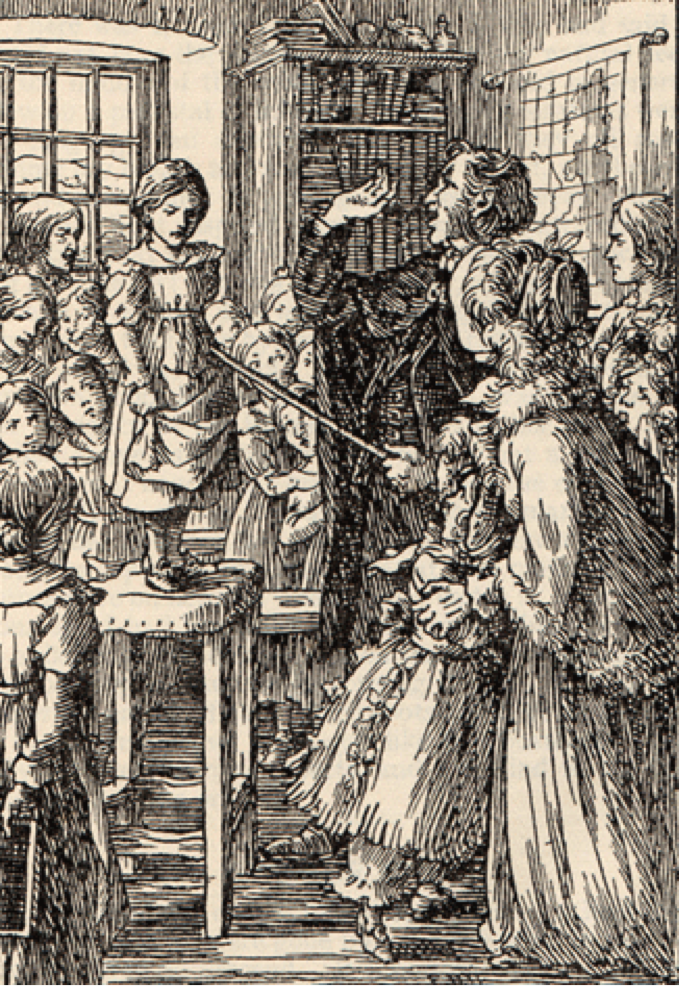“If You’ve Made Them Cry, You’ve Succeeded In Getting Your Point Across.”
A Success Academy charter school teacher was caught on film harshly criticizing and publicly humiliating a first grader. She literally tore the girl’s classwork into pieces and flung them aside!

Lowood School, from Jane Eyre
The school is claiming that the incident was an exception, both for this teacher and the system in general. However, there’s plenty of testimony that it isn’t. The title of this newsletter is a quote from a former assistant principal who says it sums up the system’s overall culture. She also notes that, “embarrassing or belittling children for work seen as slipshod was a regular occurrence, and in some cases encouraged by network leaders.”
You don’t have to be an expert on perfectionism to understand that this kind of degrading treatment is totally inappropriate to inflict on anyone, much less a child. What most people don’t realize, however, is that even a single incident like this can catalyze a lifetime of underproductivity.
I know this because I hear it all the time in workshops. I’ll be discussing a specific type of harsh criticism or rejection, and someone will look up from her note-taking and say: “I just realized that that happened to me and I never finished a story after that.” Or, “I never submitted any work after that.” Or, “I dropped out of the class [or school] after that.”
Unsurprisingly, the offender is usually a teacher, parent, boss, or other role model. Toxic rejection from this source tends to be extra-wounding because you respect the person (and, of course, are under her power). Also, because your defenses are down since you have a reasonable expectation that she will have your best interests at heart. (In other words, you’re blindsided.)
The problem is not that the underproductive person is weak or oversensitive–and of course those are ridiculous words to apply to a child. The problem is that the culture is perfectionist, and so we’re all vulnerable. (Another awful recent incident involved the new president of Mount Saint Mary’s College, a former financial executive who appears to have zero educational experience, saying that underperforming freshmen were like baby rabbits who should be drowned or shot.)
Moreover, procrastination tends to afflict the best people: those who care the most about their work, and who strive to meet the breadth of their responsibilities to themselves and others. People who don’t care as much tend to have an easier time recovering from rejection and maintaining their productivity.
Given the nature of my work, I mostly hear about callous or abusive high school, college, or writing teachers. Also, a lot of bad bosses. But many people are undoubtedly abused much earlier, and may be underproductive without knowing why. A seventy-five year old woman once started to cry while telling me about how, after she had been left back in second grade, her siblings had taunted her and called her “stupid.” Seventy years later, it still hurt. And who knows how much that incident had held her back over the years?
Thankfully, more and more people are rejecting harshness, labeling, comparisons, and other perfectionist “corrections.” The overwhelming number of commenters on the Success Academy article condemned the teacher’s behavior, and that might not have been the case a generation or two ago.
It’s lovely to see the culture evolving–so let’s all keep working at that.
Leave a Comment
You must be logged in to post a comment.

Recent Comments